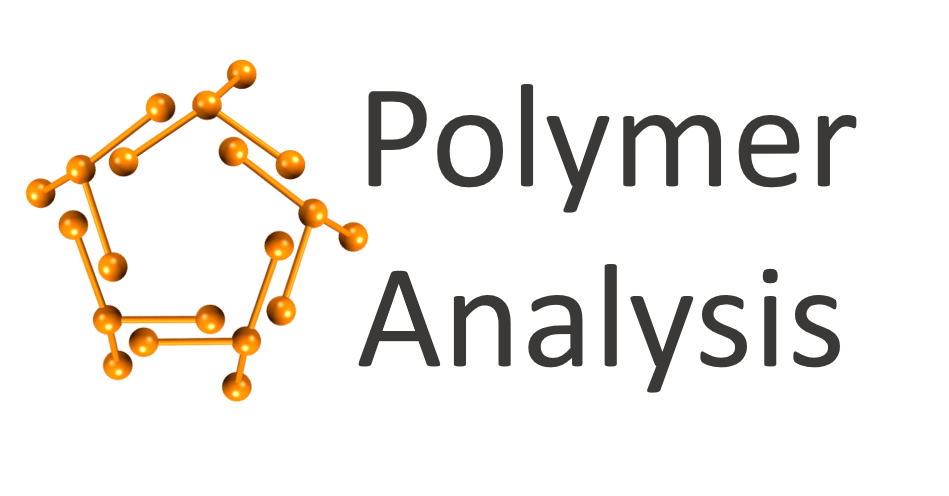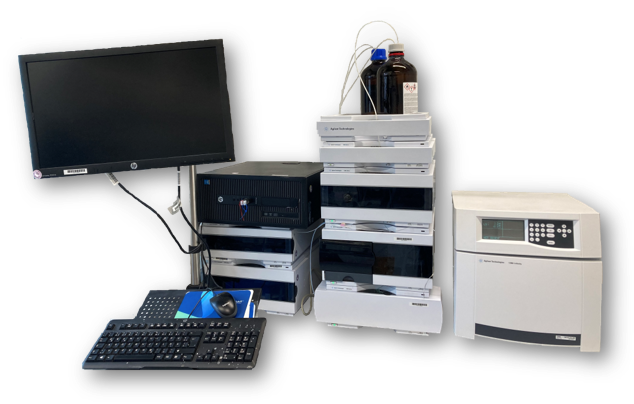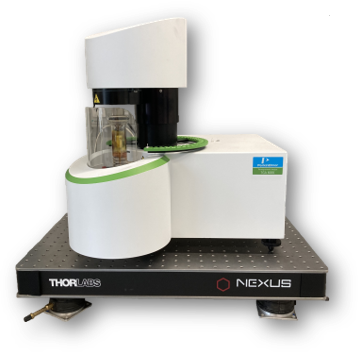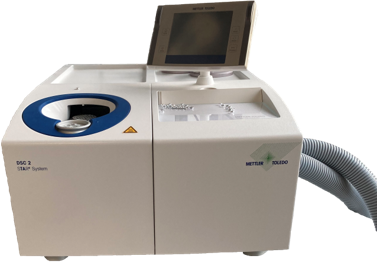
Polymers play in central role in a wide variety of research projects at the University of Ulm, spanning the fields of sustainable energy storage, photonics and biomedicine. The basic analysis of polymers covers not only determing the moleculuar weights and weight distributions of the sample, but also elucidating the thermal properties of the substance.
The Core Facility EMMA is equipped to analyze polymers or polymer mixtures using gel-permeation chromotography (GPC) and materials in general by thermogravimetric analysis (TGA) und differential scanning calorimetry (DSC). Please famillarize yourself with our capabilities below.
Questions? Feel free to contact us.
Other techniques to consider: NMR , MS, C,H,N S Analysis, XPS
Instruments
Chromatography
Gel-Permeation Chromotography

Agilent 1260 Infinity (M26/3210)
Detector
- Refractive Index Detector
- Ultra-violet Detector
- Light-scattering Detector
Columns (Eluents)
SDV Linear M (styrene-divinylbenzene copolymer network)
- Eluent - THF
- Particle Size - 5 µm
- Molar Mass Range
- 500 to 2,000,000 Da
PLgel Mixed-B (polystyrene-divinylbenzene gel)
- Eluent - DMF
- Particle Size - 10 µm
- Molar Mass Range
- 500 to 2,000,000 Da
Preparation
- The sample(s) should be dissolved using high-purity solvents, filtered into a glass vial and capped prior to submission.
- Please contact Magdelene Zimmermann for the required materials.
Submission
- Prepared sample(s) can submitted in M26/3210 to Magdelene Zimmermann.
- molar-mass analysis
- polymerization-reaction monitoring
Thermal Analysis
Thermal Gravimetric Analyzer

Perkin Elmer TGA 8000 TM (M26/3211)
Temperature
Standard Range
- 30 °C to 800 °C (max 1000 °C upon request)
Heating Rate
- 10 °C/minute (0.1 °C to 500°C/minute upon request)
Purge Gas
- N2 or O2
Preparation
- 10 mg of dried sample should be submitted in a labelled vial with cap.
Submission
- Please fill out the measurement request form below and send to CF EMMA. Please submit samples to Günther Weber, M26/3211.
- volatile-content determination
- decomposition and thermal stability
- oxidation processes
Differential Scanning Calorimeter

Mettler-Toledo DSC 2 (M26/3211)
Temperature Range
-120 °C to 350 °C
Features
- ceramic sensor FRS6
- liquid nitrogen cooling
Preparation
- 10 mg of dried sample are transferred to a labelled vial and capped.
Submission
- Please fill out the measurement request form below and send to CF EMMA. Please submit samples to Günther Weber, M26/3211.
- determining phase transitions
- extent of crystallization
- studying cross-linking reactions
